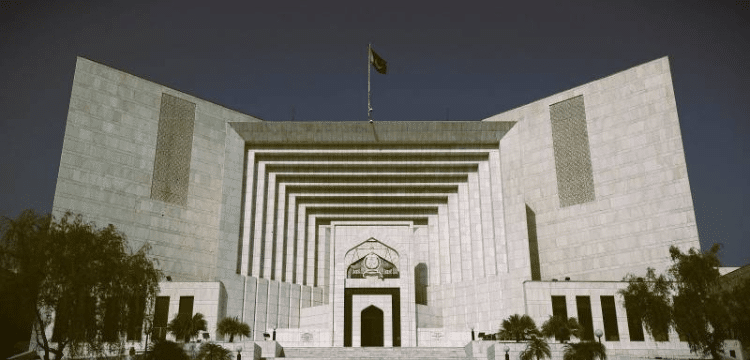[vc_row][vc_column][vc_column_text dp_text_size=”size-4″]The Supreme Court of Pakistan has authorized former Prime Minister Imran Khan to participate in the case regarding alterations to the National Accountability Ordinance, 1999 (NAO) through video conferencing. This decision was made during a live session of the Supreme Court, led by a five-member bench including Chief Justice Qazi Faez Isa and other justices.
The case revolves around modifications to the NAO, which governs the operations of Pakistan’s National Accountability Bureau (NAB), the country’s primary anti-corruption agency. These amendments have been under legal scrutiny, with the government challenging a previous ruling that declared them invalid.
Read more: What will Imran Khan discuss in his letter to General Asim Munir?[/vc_column_text][/vc_column][/vc_row][vc_row][vc_column][vc_raw_html]JTNDaWZyYW1lJTIwd2lkdGglM0QlMjI3MDQlMjIlMjBoZWlnaHQlM0QlMjIzOTclMjIlMjBzcmMlM0QlMjJodHRwcyUzQSUyRiUyRnd3dy55b3V0dWJlLmNvbSUyRmVtYmVkJTJGTDBQUTVFNTBpS00lMjIlMjB0aXRsZSUzRCUyMlN1cHJlbWUlMjBDb3VydCUyMG9mJTIwUGFraXN0YW4lMjBMaXZlJTIwUHJvY2VlZGluZ3MlMjAtJTIwJTI4MTQtMDUtMjAyNCUyOSUyMiUyMGZyYW1lYm9yZGVyJTNEJTIyMCUyMiUyMGFsbG93JTNEJTIyYWNjZWxlcm9tZXRlciUzQiUyMGF1dG9wbGF5JTNCJTIwY2xpcGJvYXJkLXdyaXRlJTNCJTIwZW5jcnlwdGVkLW1lZGlhJTNCJTIwZ3lyb3Njb3BlJTNCJTIwcGljdHVyZS1pbi1waWN0dXJlJTNCJTIwd2ViLXNoYXJlJTIyJTIwcmVmZXJyZXJwb2xpY3klM0QlMjJzdHJpY3Qtb3JpZ2luLXdoZW4tY3Jvc3Mtb3JpZ2luJTIyJTIwYWxsb3dmdWxsc2NyZWVuJTNFJTNDJTJGaWZyYW1lJTNF[/vc_raw_html][vc_column_text dp_text_size=”size-4″]In response to the government’s appeals, the Supreme Court convened to discuss the issue. During the session, the court granted Imran Khan, the leader of the Pakistan Tehreek-e-Insaf (PTI) party, permission to participate in the case via video conferencing.
This decision reflects the court’s commitment to ensuring fair legal processes, particularly in politically significant cases. It also acknowledges the role of technology in facilitating remote participation, thereby improving access to justice.
As the legal battle over the NAB amendments unfolds, the Supreme Court’s decision to allow remote participation sets a precedent for utilizing technology in legal proceedings, ultimately enhancing efficiency and inclusivity in the justice system.[/vc_column_text][/vc_column][/vc_row]











